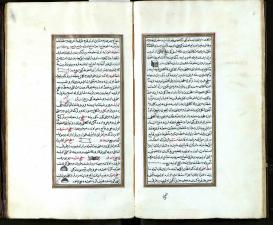This project explores the entangled history of naturalism and cosmopolitanism in Ottoman Istanbul. I investigate the interface between artisanal and scholastic ways of knowing during a transformative period in Ottoman history. Some of the salient dynamics of this century were the empire’s emerging cosmopolitan culture, Istanbul’s changing relationship with global commerce, structural transformations in Ottoman politics and, last but not least, the extension of Europe’s cultures and counter-cultures to the Eastern Mediterranean. In this context, the narrative of Ottoman decline became a common trope among conservative authors of the seventeenth and eighteenth centuries. Decline meant, quite simply, the mismatch between the idealized feudal society of medieval Islamic ethics and the realities of the Ottoman Empire as a mercantile and urban polity with Muslim, Orthodox Greek, Armenian, Jewish, and European stakeholders. By the eighteenth century, the decline narrative had given way to a far more enlightened discourse that defined the Empire as a multiconfessional monarchy that thrived on commerce. The "Enlightenment and Imperial Decline" project observes this important transformation through naturalist texts. Its key themes are the valorization of empirical knowledge, the deconfessionalization of philosophy, the revival of classical Arabic disciplines as humanistic subjects, and the rise of utility as the key value defining the dignity of science.

Armenian instrument-maker Petros Baronyan’s low Turkish translation of Jacques Robbe’s Methode pour apprehendre facilement la geographie. Süleymaniye MS Yazma Bağışlar 7530, Istanbul.
Project
(2013-2014)
Enlightenment and Imperial Decline: Cultures of Naturalism in the Ottoman Empire, 1650–1750
- B. Harun Küçük
